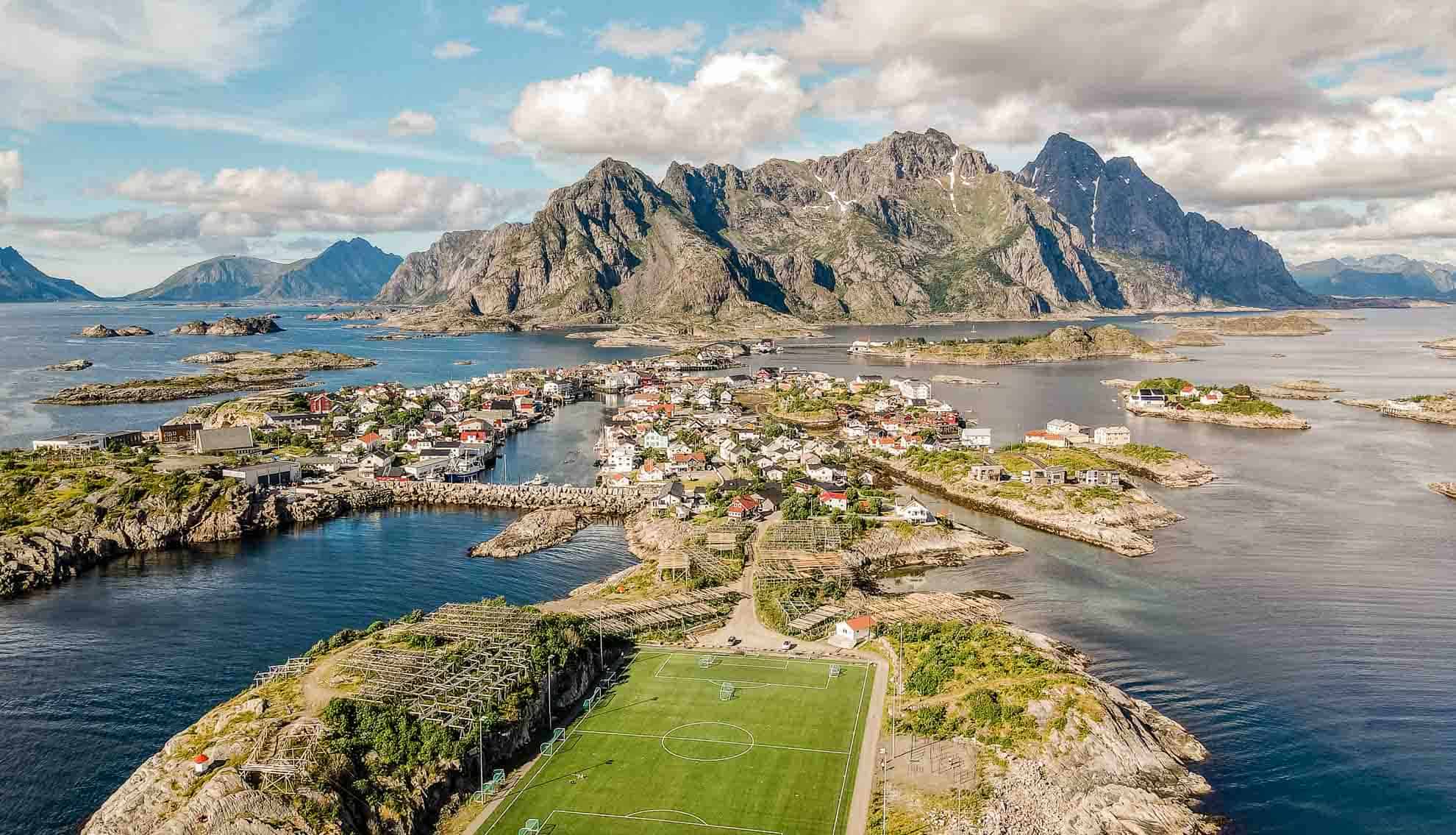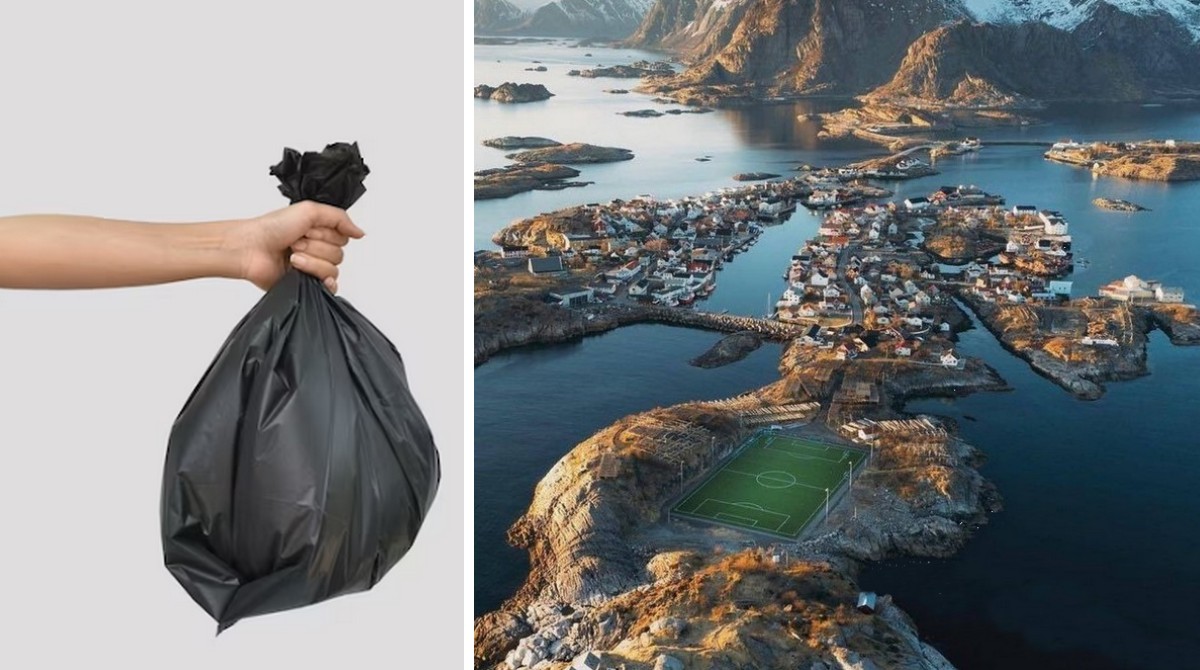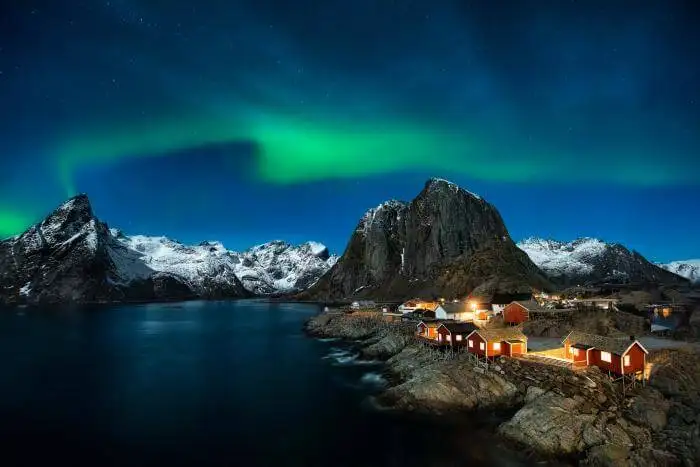All tourists began to be issued with black plastic bags to collect their feces upon arrival in the Lofoten Islands, a popular resort located in the north of Norway in the North Sea. This new initiative was developed by researcher Rose Keller from the Norwegian National Research Institute for Nature (NINA) as part of a plan to combat the growing pollution problem.
As the British newspaper Mirror reported, Keller drew attention to the importance of understanding the way tourists think and behave in the natural environment. “You have to understand the way people think and how they move in nature. Once we know that, we can figure out what interventions will work and what messages are best for them,” she said. To avoid the problem of contamination of the archipelago with human excrement, guests of the archipelago were asked to issue bags similar to those that dog owners reluctantly use to clean up after their pets.
Theoretically, tourists have a high interest in new means of preserving the purity of nature
A survey among visitors showed that 75% of them are ready to use new feces collection facilities if they are free and available. This indicates a high interest in solving the problem of pollution, Keller believes.
The introduction of new means has already taken place in the Lofoten Islands. Last week, information boards, a bag box, and a trash container where tourists can dispose of filled bags of feces were installed there.

The publication clarified that initially 400 packages were ordered – they are distributed by local authorities for free during a four-week test period. But after that, you will have to pay for the containers, the amount has not yet been announced.
According to the researcher, she tested such a package and noted its ease of use and sealing, as well as its ability to contain bacteria. In addition, she drew attention to the fact that about 80% of the package is biodegradable, which contributes to reducing the negative impact on the environment. However, so far the guests of the islands do not bring the packages to the bins, but throw them into the bushes or throw them on trees.
Why did such a delicate problem arise?
According to the specialist, the traffic on the islands is very high and this can be seen from the waste left behind by visitors. At the same time, the Lofoten Islands face the challenges of limited funding and maintaining public services at an adequate level. The authorities have introduced a ban on wild camping, that is, people are not allowed to set up tents on the beaches of Lofoten. This is done to cope with the influx of travelers and reduce their negative impact on the environment.
It is expected that a tourist tax may be introduced in the coming years to ensure funding and support of public services by the requirements of the standards and conservation of the natural resources of the islands.
Reference: The Lofoten Islands are famous for their unique nature, beautiful landscapes, and unique climate. They are a mountainous group of islands with high granite peaks, cliffs, white sandy beaches, and clear fjord waters. They are also known for their quaint fishing villages where you can see traditional wooden houses known as “rorbu”.
The Lofoten Islands offer many activities for vacationers. They are popular with fishing enthusiasts, including cod and salmon. The islands also attract eco-tourists who can go hiking in the mountains and explore nature. In addition, the Lofoten Islands offer the opportunity to observe the Northern Lights, especially during the winter months. Cultural attractions, including museums, exhibitions, and festivals, also make the northern destination interesting to visit.


